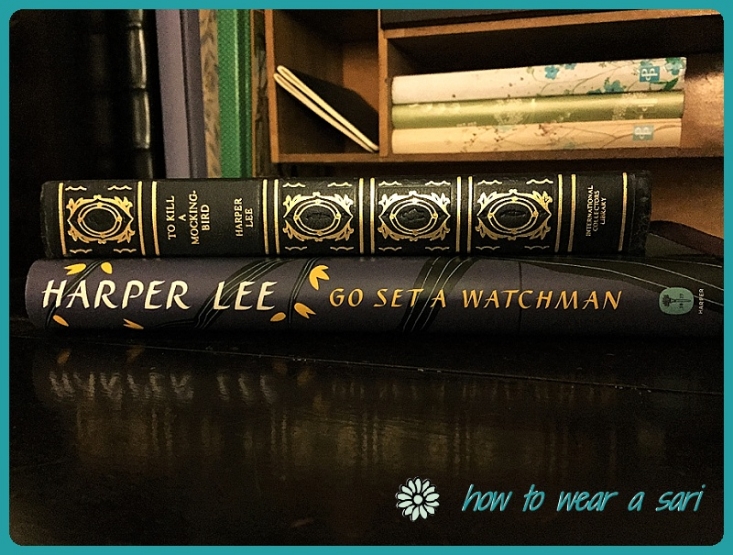Identity, Culture & Privilege: Why I Write
/I've been holding onto this post for over a month, wondering about it's purpose here and trying to find the clearest, most concise way to explain why it's important. Here it is:
Identity. Culture. Privilege.
These three words are the reason I feel compelled to keep writing here. They define the journey I'm on. If you read those words and nodded your head, you probably don't need to read any further. If you read them and shook your head or hesitated, please keep reading. If, like me, you haven't had to think about your culture for much of your life, please keep reading. This post is for you.
When I was in elementary school, my mother told me that Italians don't wear green on St. Patrick's Day--they wear red. (I looked into it today.) Italian and Irish (Scottish? Scotch-Irish? Is there a difference? I wasn't sure) are both part of my ancestry. I got a secret thrill from choosing what color to wear on St. Patrick's Day. Would I wear green like everyone else? Would I wear red and dare someone to pinch me so that I could brag about this new fun fact? Would I wear both? Having two cultures as part of my heritage was a fun way to declare my identity in a unique way.
I felt the same when I would tell people about our wedding day--two weddings in the same day. One Indian, one Catholic. It was a 106 degree day in July. Our story feels unique.
Having a child changed the context of our intercultural family. Where intercultural had been a word that casually described my husband's and my relationship, it now defined our son's identity. The intercultural nature of our family is something we now pay close attention to because we value both cultures, and because we never want our son to feel divided. It's requiring a conscious effort on both our parts because we're basically making it up as we go along. It's also making us better parents and better people.
Paying attention to culture--whether yours or someone else's--is a good thing. It's something everyone should do. Especially if you are white--part of the dominant culture in the United States. I'll talk about why I feel this way in a minute. First there are a few words I'd like to talk about in the context of this post and this blog as a whole.
Identity
The set of defining characteristics that reflect who you are and how you fit into the world relative to other groups of people. These characteristics can be visible or invisible, chosen or assigned by an outside (powerful) person or group. The assigned and visible characteristics are how others place you into a group.
I am a white, able-bodied woman in my thirties. I am a wife and mother. I'm a part of the millennial generation and a member of the upper-middle socioeconomic class. I am also a Catholic, a reader, writer, teacher, stay-at-home-mom, and foodie.
Culture
The common and defining features of the people and places that form your identity. For most people and families, culture includes the features and characteristics of the places you are from and where you are living, of your racial or ethnic group, and of your faith tradition. But individual families also have their own cultures: for example, military families who relocate often may have a very different culture than a farming family whose livelihood is tied to a specific plot of land (perhaps for generations). The size of a family or their citizenship/immigration status can affect a family's culture. (Really, just go watch My Big Fat Greek Wedding.)
And, finally,
Privilege
The reason I didn't have to think about my culture growing up beyond what color to wear on St. Patrick's Day in any given year. (The reason I even had a choice of which color to wear.) Growing up, my culture and identity were already reflected and affirmed all around me. When parts of your identity aren't challenged, diminished, overshadowed, or dominated by another group in your society, you don't have to question or defend (or even think about) them. Who you are, what you look like, the way you speak and behave, what you're interested in, etc. are all considered normal and acceptable by the majority of the people around you. Because of this, you have the freedom to be and behave and pursue your interests as you wish without consequence.
Why is all of this important?
Each person and each family has a culture. Our world, your country, your city, your neighborhood are all intercultural. Which means that your family and mine will likely experience many of the same joys and challenges that happen when cultures interact.
It's important to think and talk about our individual cultures (especially if you are part of the majority). Doing so helps to affirm your identity. It also leads you to recognize the unique features of other cultures in a positive way, which can decrease negative, uncertain, or anxious feelings towards others.
Understanding how we identify ourselves and others in our society (the identities we choose and the ones assigned to us, the way we assign identities to and make assumptions about others) can help us to be more careful about how we identify others. It can help us to uncover and correct our prejudices.
Recognizing the ways in which we are privileged leads us to recognize the ways others are disadvantaged--and work to correct the imbalance.
This is the work we're beginning to do in our family. It's the work I think all families should do, too.











